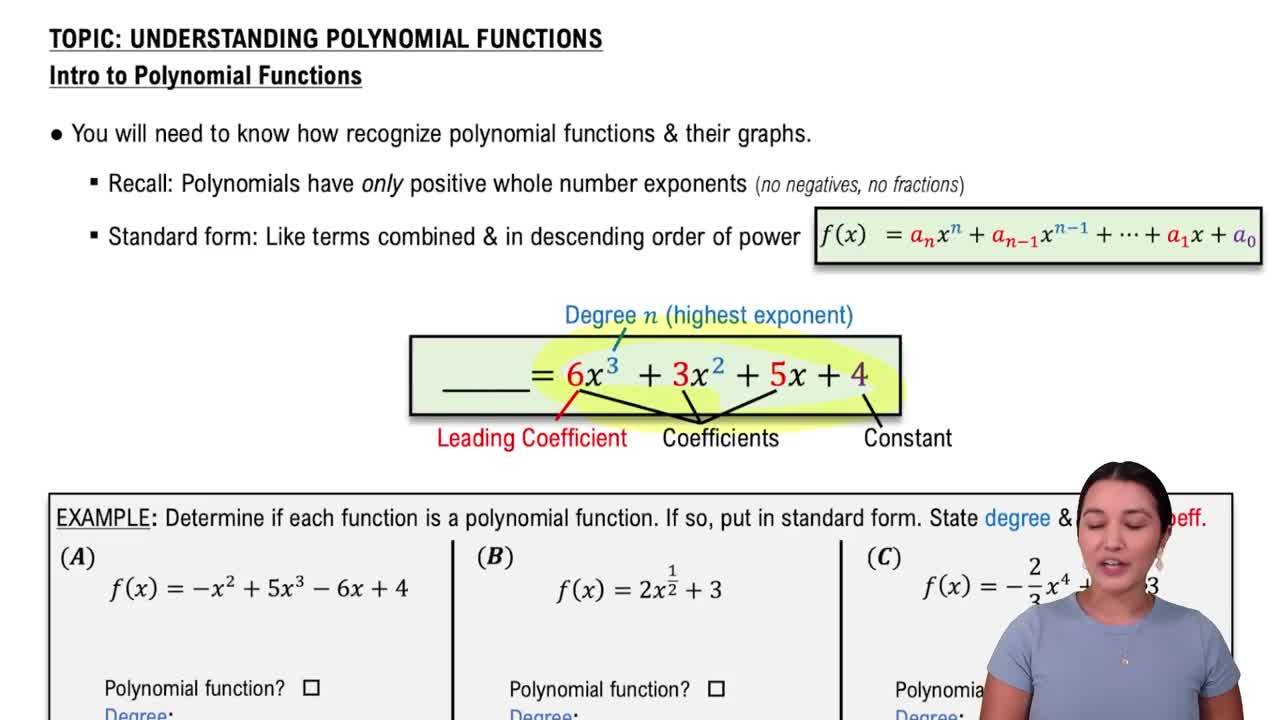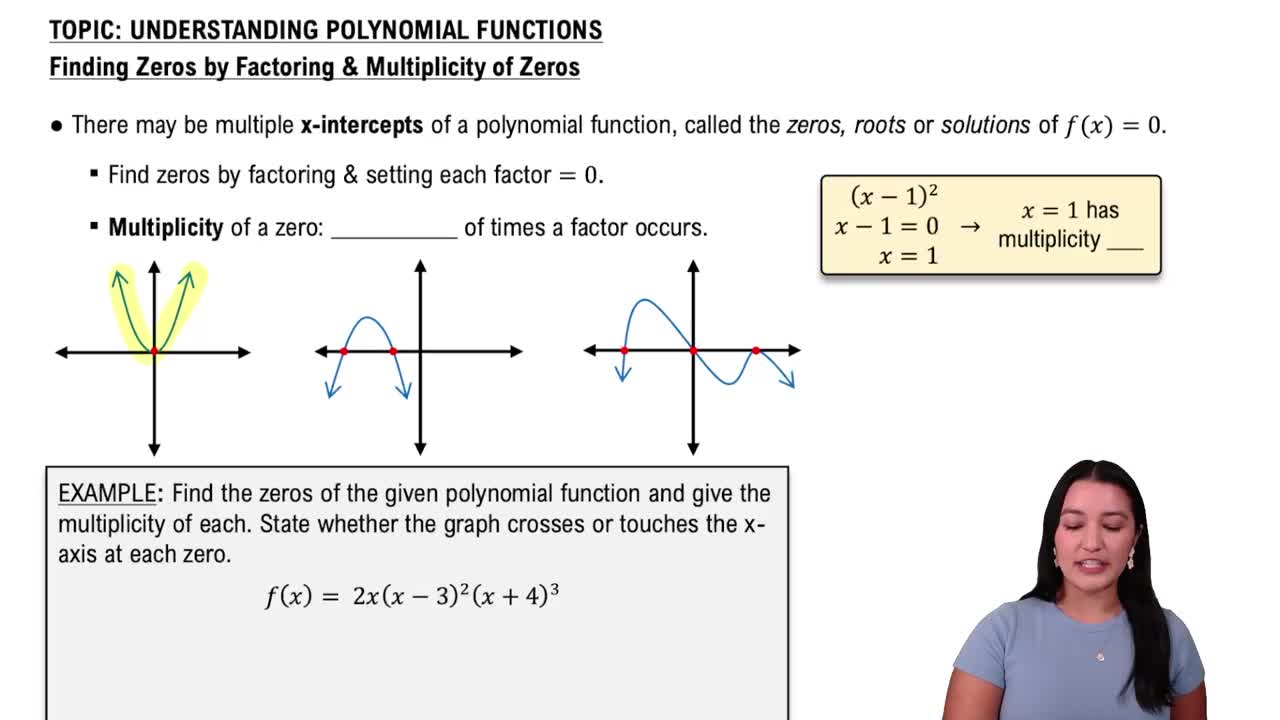Here are the essential concepts you must grasp in order to answer the question correctly.
Complex Zeros
Complex zeros are solutions to polynomial equations that may include real and imaginary numbers. A complex zero can be expressed in the form a + bi, where a and b are real numbers, and i is the imaginary unit. Understanding complex zeros is essential for analyzing polynomial functions, especially when the polynomial does not have real roots.
Recommended video:
Polynomial Functions
A polynomial function is a mathematical expression involving a sum of powers in one or more variables multiplied by coefficients. The degree of the polynomial, determined by the highest power of the variable, influences the number of zeros it can have. For example, a fourth-degree polynomial can have up to four complex zeros, including real zeros.
Recommended video:
Introduction to Polynomial Functions
Finding Zeros
Finding the zeros of a polynomial involves determining the values of the variable that make the polynomial equal to zero. This can be achieved through various methods, including factoring, synthetic division, or applying the Rational Root Theorem. For polynomials with complex coefficients, techniques such as the quadratic formula or numerical methods may be necessary to identify all zeros accurately.
Recommended video:
Finding Zeros & Their Multiplicity
 Verified step by step guidance
Verified step by step guidance


